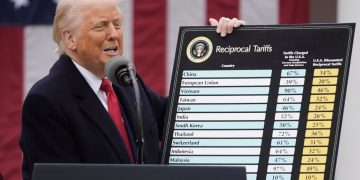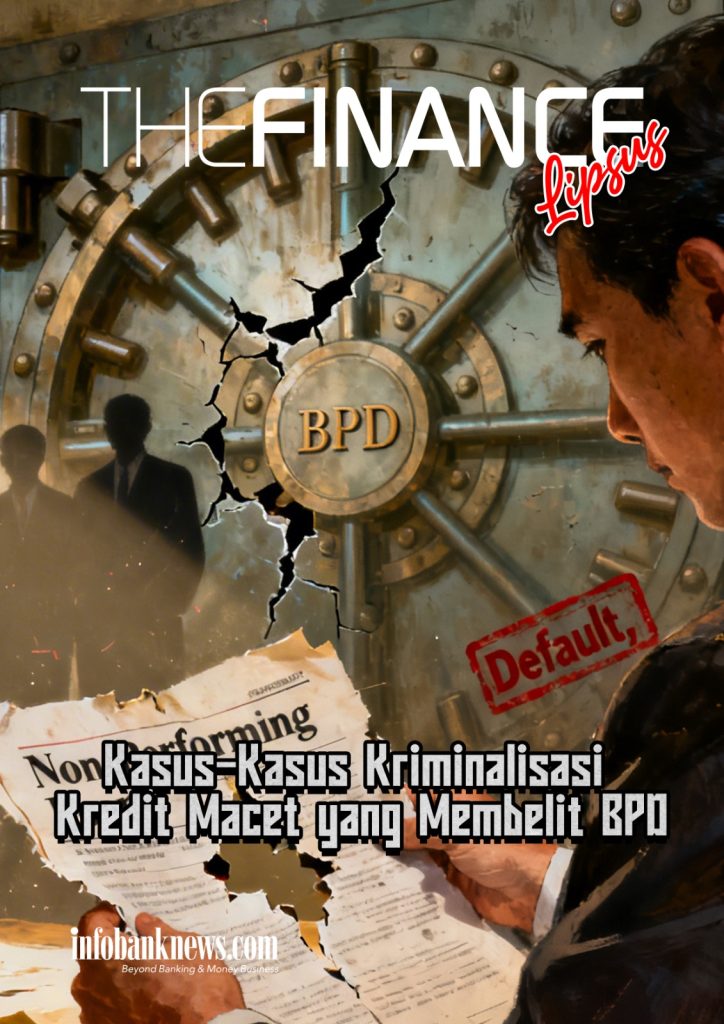By Eko B. Supriyanto, Chairman of Infobank Media Group
A number of governors and regional heads will quit simultaneously in the next few days. That’s because there will be simultaneous elections for the President, members of the House of Representatives (DPR/DPRD), the Regional Representatives Council (DPD), and regional heads such as governors and regents. The official in charge of the regional head will be appointed for a period until the election of the regional head of the 2024 election results.
However, the appointment of the Official in charge of the governor should not lead to abuse of power – which often occurs in local government practices. For example, without clear reasons, the Pj governor replaces and mutates ASN officials, and even replaces BPD directors and commissioners at will. In fact, he also ordered the transfer of regional cash funds out of BPD, which in fact belongs to the local government.
The appointment of this regional head is to fill the vacancy of the governor’s position – then the governor’s official is appointed from the position of middle high leadership until the inauguration of the governor in accordance with the applicable legislation. And, as Article 174, paragraph (7), Law Number 10/2016 states, “In the event that the remaining term of office is less than 18 (eighteen) months, the President shall appoint the Governor and the Minister shall appoint the Regent/Mayor”.
What does this have to do with the directors of regional development banks (BPD)? So far, not all regions, but these days it has become a kind of trend, replace the governor replace the directors of BPD-BPD. It’s like war “spoils”. If you have become a regional head, what you do is change the position of the BPD directors and of course the position of the CEO. Also, commissioners.
According to Infobank Institute noteds, not a few BPD directors were dismissed for the remainder of their term. It doesn’t matter if the performance of the BPD is good or not. All must submit to shareholders or Controlling Shareholders (PSP) – most of whom are governors. In fact, there are several BPDs that do not have a CEO, such as Bank Kalteng, which has not had a CEO for two years, and Bank Papua, which is still in temporary officials in charges of the CEO.
More than that, some directors were also removed in the middle of the road. That is the right of shareholders. However, in a broader context, changes that are not based on good governance, will put BPD on the commodity “toy” of regional heads. In fact, BPD is a business institution that lives continuously. Meanwhile, the head of the region is only temporary, and a maximum of 10 years.
Local governments not only have BPDs, but also regional companies (PDs), such as PDAMs or printing and other companies, such as pharmacies. Honestly, only BPD produces a large contribution of local revenue (PAD). Meanwhile, there are not many regional companies that are profitable, not even a few that are battered, aka loss.
Either because BPD is the largest PAD producer, it is treated like the “treasure” of the Prophet Solomon’s legacy. Not only by the region, but the most headache is by the success team under the pretext of “CSR” programs that sometimes make no sense and are more for returning the favor after the election.
Back to the issue of changing regional heads, changing BPD directors. Do not let the Official in charge of the governor who is only in power in a matter of months in the future do “practices” that are not in accordance with the principles of good corporate governance (GCG), namely by just changing the directors who are not in accordance with the “whisperer”.
Well, there are many “whisperers” in BPD. It could also be that one team of directors and more of the employees under them become whisperers – especially those who feel close to the Official in charge of the governor. Even more horrifying, the whisperer is a “debtor” who is close to the regional head.
BPD’s problem is shareholders. It is time to no longer talk about shareholders, but stakeholders. So, not only shareholders, but also the interests of government, customers, employees, and the sustainability of BPD in the future. The bank business is a marathon, long-term business. And, the bank business is full of risks that are always calculated and should not be intervened depending on the short-term tastes of these Official in charge of the Governors.
These Official in Charge of the governors should not be given the power to replace BPD directors in the middle of the road. So far, the basis for replacement is unclear and subjective. Do not let the whisperers of these Official in charge of the governors have the first agenda to replace BPD directors and commissioners. The sudden changes in BPD directors and commissioners made so far are mostly due to subjective factors. A matter of taste and political interests. There are no legal issues involved.
For this reason, the Ministry of Home Affairs and of course the Financial Services Authority (OJK) can be a stronghold for BPD directors and commissioners. Not just play replace with sought-after reasons. As long as there are no integrity issues, and the law has been proven, the replacement of BPD directors and commissioners by the Official in charge of the governor must be stopped. Moreover, the BPD is performing “very well”, in accordance with the key performance indicator (KPI) that has been targeted.
Honestly, it must be recognized, BPD is a relatively healthy BUMD, because it can be supervised by OJK and Bank Indonesia (BI). Many rules govern and oversee the running of the bank. Unlike other BUMDs, there is no supervision and governance is more chaotic than banks. In fact, BUMDs other than banks are managed like grocery stores.
For this reason, the Ministry of Home Affairs should be “willing” to exclude banks from PP No.54 of 17 concerning Regional-Owned Enterprises (BUMD). It must also be supported by OJK, because OJK is based on the Financial Sector Development and Strengthening (P2SK) Law, which is higher than the PP. It is only natural that OJK dares to put its body on BPD because it is supervised by good governance in accordance with OJK regulations. Do not let this shareholder problem become a problem and “dwarf” BPD. The Ministry of Home Affairs is too involved in the undue interference contained in PP 54 of 2017.
Moreover, the challenges for banks, including BPD, in the future are not light. It needs digital transformation to keep growing sustainably. However, what bankers need in this digital era is not only a long-term vision, but also a digital culture – not enough to survive, but also be able to adapt.
No longer passive, but able to capture the customer ecosystem. No longer just products, but platforms that can combine online and offline. In fact, new ideas are needed, plus the acumen to reach new markets, while being able to navigate an increasingly uncertain world.
All this requires consistency in the transformation policy, which is currently being carried out by almost all BPDs. There needs to be continuity of leadership. No “cut” and replace. No more changing governors, let alone just Official in charge , changing BPD directors. This will disrupt the digital transformation process currently being carried out by banks, including BPDs.
It is time for the Minister of Home Affairs and the President to maintain the “muruah” of bank governance. Because, BPD is also a bank, not a PDAM. Because, banks are not compatible with PP 54 Year 2017 – which, to be honest, contains “dwarfing” BPD. There should be no more arbitrariness in BPD by playing “remove”, only for the momentary interests of the Pj governor who will serve in early September 2023.
Hopefully, the Official In charge of the governors who will be in charge will not abuse a power or abuse the power / authority of the transitional philosophy because there will be simultaneous elections in 2024. Do not abuse a power – because this Official governor power does not get a mandate from the people.
The step of maintaining the sustainability of BPD is much more important for the current transformation process. Mr. President Jokowi must “cawe-cawe” to maintain BPD as an economic “pillar” in the region and at the same time as a hand for literacy and inclusion in the regions. (*)













